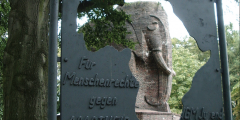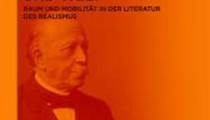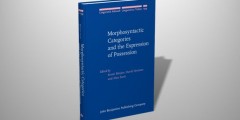More Windows on Russia and Eastern Europe
18/07/2013
In our latest sneak peek of the forthcoming book ‘Windows on Russia and Eastern Europe’, written by Nottingham alumni, we hear from Daniel Vowles, who worked in the Soviet Union at the fall of the Berlin Wall. Doing business was chaotic to say the least… My next “dream” posting was to Kaliningrad. I have to admit …
German literature rediscovers Germany’s neglected colonial history
15/07/2013
In the late 1990s, a surge of historical novels about German colonialism in Africa and its previously neglected legacies hit the German literary scene. Accelerated by the centenary in 2004 of Germany’s colonial war in South-West Africa and the genocide of the Herero, this development has continued to the present, making colonialism an established theme …
Nineteenth-century German literature reflects globalisation and modernisation
25/06/2013
The literature of German Realism, written between c. 1840 and 1900, has often traditionally been seen as a turn against modernisation, a retreat into German provincialism and hence a deviation from the European literary trajectory from Romanticism to Modernism. International scholarship in German literary studies since the later 1990s has challenged this idea, and research into …
Windows on Russia and Eastern Europe
16/05/2013
Written by graduates of the University of Nottingham’s Department of Russian and Slavonic Studies, the forthcoming book Windows on Russia and Eastern Europe sheds light on how the Communist-controlled lands of the Soviet Union and Eastern Europe evolved from Stalinism to Gorbachev’s perestroika to the robber baron days of the 1990s and finally to today’s uneasy mix of …
Possession marking: ’s and beyond
14/03/2013
One of the most widely studied elements of the Germanic languages is the ’s which attaches to a noun phrase to indicate possession in English. The analysis of this element, the possessive ’s, has been the object of much debate in linguistics on account of its unusual behaviour, which makes its categorisation problematic. It can …





